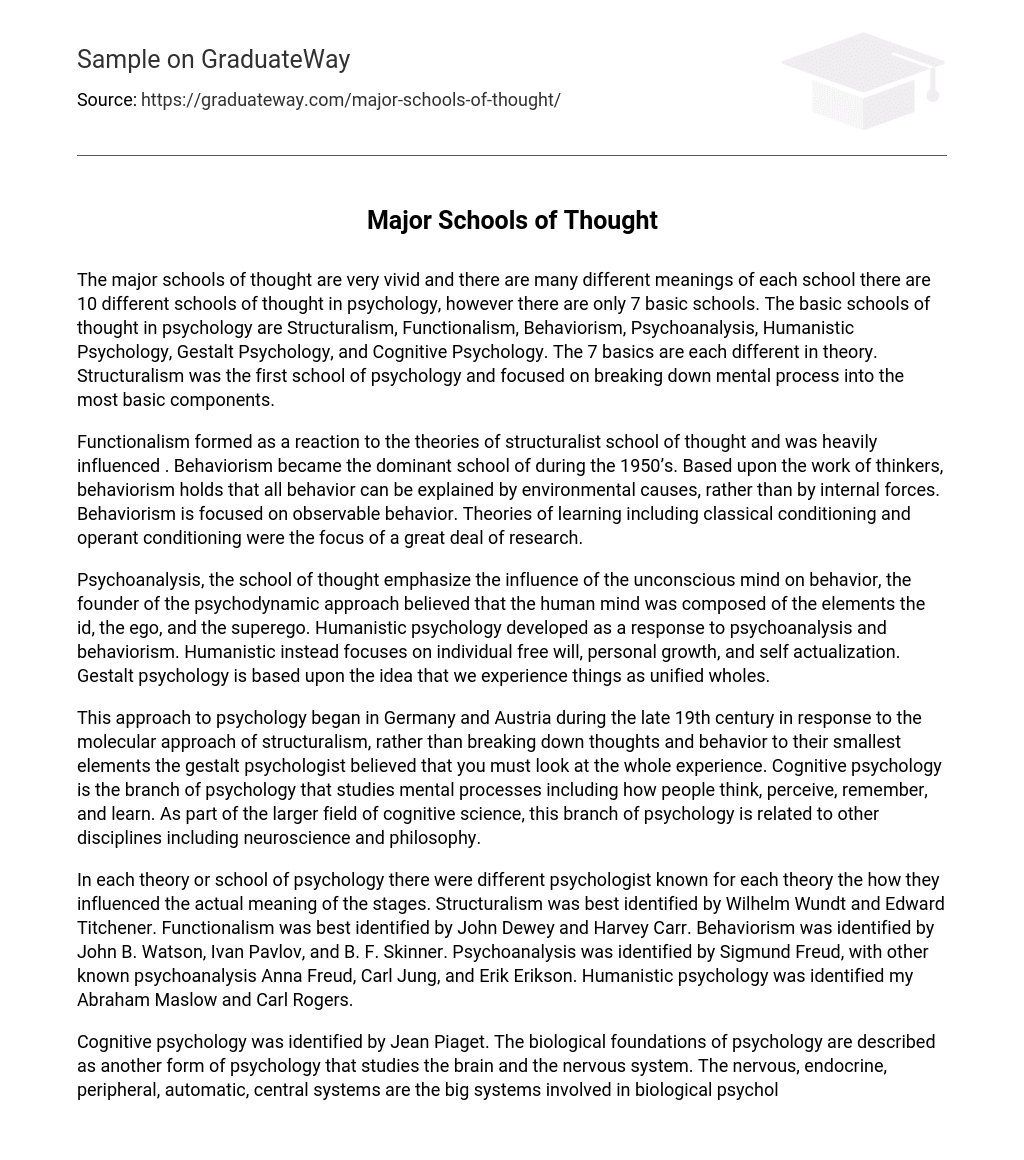There are a total of 10 schools of thought in psychology, including 7 basic schools. These major schools have different meanings and theories. The 7 basic schools encompass Structuralism, Functionalism, Behaviorism, Psychoanalysis, Humanistic Psychology, Gestalt Psychology, and Cognitive Psychology. Each school has its own unique theories and approaches. The first school, Structuralism, focused on breaking down mental processes into their fundamental components.
Functionalism emerged in response to structuralist theories and was greatly influenced by them. During the 1950s, behaviorism gained prominence as the prevailing ideology, drawing inspiration from various thinkers. Behaviorism posits that external factors, rather than internal forces, determine all behaviors. It prioritizes observable behavior and extensively explores learning theories such as classical conditioning and operant conditioning.
The psychodynamic approach, psychoanalysis, emphasizes the impact of the unconscious mind on behavior. Its founder introduced the id, ego, and superego as components of human cognition. Humanistic psychology developed in response to both psychoanalysis and behaviorism, prioritizing individual autonomy, personal development, and self-realization. In contrast, Gestalt psychology centers on perceiving entities as unified wholes.
The origin of cognitive psychology can be traced back to Germany and Austria in the late 19th century as a response to structuralism. This approach, known as cognitive psychology, focuses on understanding thoughts and behavior holistically rather than analyzing them individually. Its scope includes the study of mental processes such as thinking, perception, memory, and learning. Cognitive psychology is closely connected to other disciplines like neuroscience and philosophy within the broader field of cognitive science.
There were different psychologists known for each theory or school of psychology, and they influenced the actual meaning of the stages. Wilhelm Wundt and Edward Titchener were best known for identifying structuralism. John Dewey and Harvey Carr were best known for identifying functionalism. John B. Watson, Ivan Pavlov, and B. F. Skinner were identified with behaviorism. Sigmund Freud was identified with psychoanalysis, along with other known psychoanalysts Anna Freud, Carl Jung, and Erik Erikson. Abraham Maslow and Carl Rogers were identified with humanistic psychology.
Cognitive psychology, as defined by Jean Piaget, involves the examination of mental processes and how they impact behavior. On the other hand, biological psychology focuses on comprehending behavior and mental processes through the study of the brain and nervous system. The scope of biological psychology encompasses various systems such as the nervous, endocrine, peripheral, automatic, and central systems.
The primary function of the nervous system is to transmit messages from the body to the brain. In contrast, the endocrine system regulates hormones and glandular function. Additionally, the peripheral system (also referred to as somatic nervous system) deals with transmissions from the central nervous system (CNS), voluntary movements, and other bodily processes.
The automatic nerve system, consisting of the sympathetic and parasympathetic nervous systems, plays a role in vital life processes. It connects the central nervous system (CNS), which comprises the brain and spinal cord, to muscles in the back and organs. Biological psychology studies these body parts and their influence on human behavior. The importance of genetics in psychology and biological psychology is widely acknowledged.
The genetic makeup of an individual affects both their inherited traits and external appearance, as well as their internal composition. This indicates that behavior is influenced by internal bodily processes. As a result, modifying someone’s physical constitution through surgery and medication can impact their behavior. Behavioral neuroscience, also referred to as biological psychology, biopsychology, or psychobiology, utilizes the principles of biology, specifically neurobiology, in investigating mental processes and behavior.
To summarize, biological psychology is the examination of brain functionality. This includes an exploration of major psychological schools of thought, their corresponding theories and functions. The biological basis of psychology entails studying the brain and its fundamental presumptions, encompassing theories, stages, and statistics.





